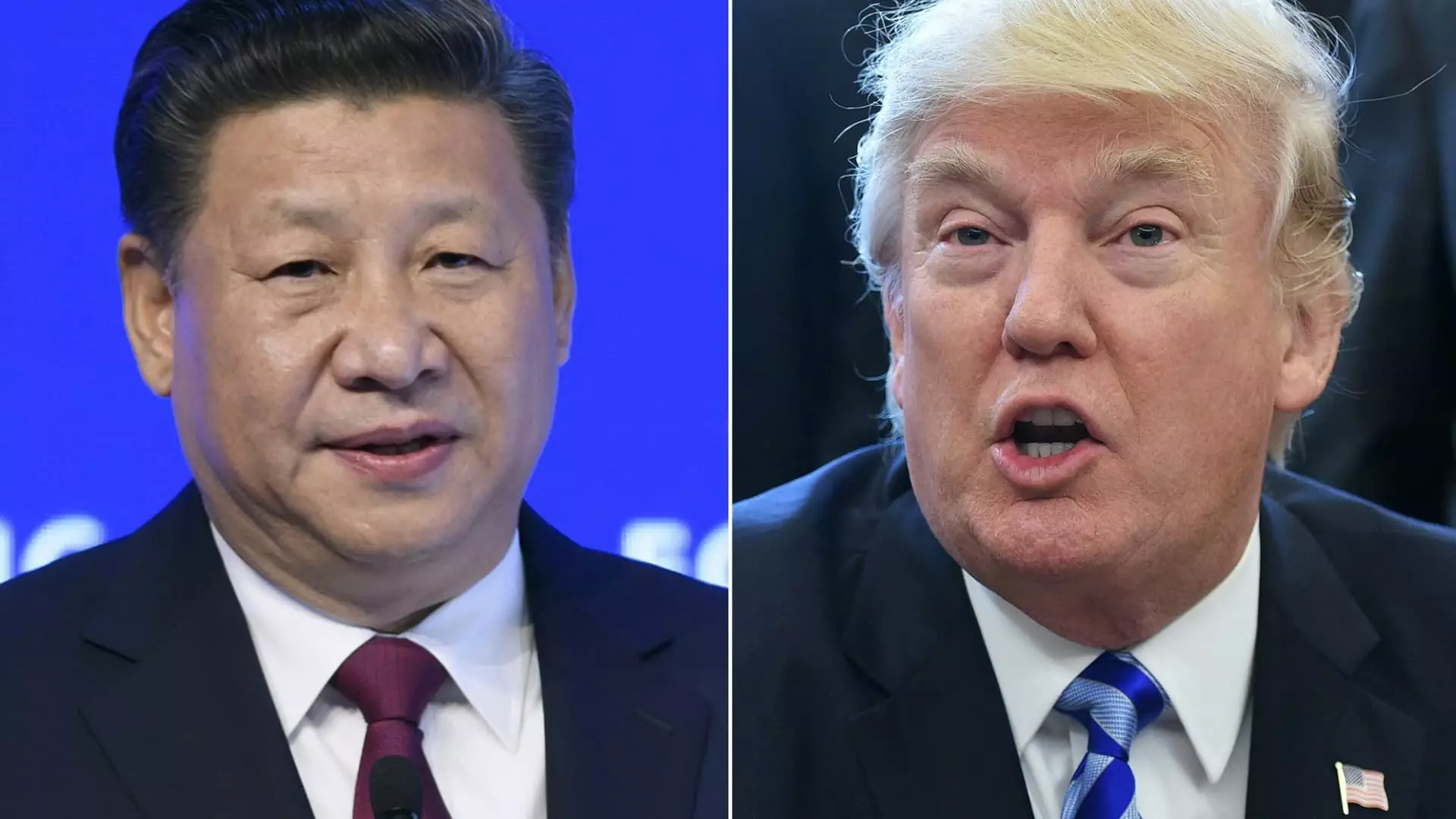In the realm of international trade, President Donald Trump’s approach has been heralded by some as a refreshing departure from traditional diplomacy, while others see it as a harrowing gamble on global stability. Trump’s recent claims regarding China’s alleged breach of a preliminary trade agreement only amplify the chaos and uncertainty that reign over U.S.-China relations. The situation exemplifies a broader, troubling trend: negotiations veiled in the theatrics of social media bullhorns rather than substantive diplomatic dialogue. The fallout of such reckless rhetoric is far-reaching, with stock markets trembling at the whims of a president who operates more like a reality TV star than a global statesman.
The Fragility of International Trust
At the core of any trade agreement lies the mutual trust between nations, an element that appears to be lacking under the current administration. U.S. Trade Representative Jamieson Greer echoed Trump’s sentiments regarding China’s supposed reluctance to comply with the terms of the preliminary agreement, describing the situation as “completely unacceptable.” Yet, the inherent irony is palpable: the very rhetoric employed by the administration has fostered an environment of mutual suspicion. Instead of engaging in constructive dialogue, Trump’s loud proclamations create fissures that threaten to obliterate the foundations of negotiation. Such an approach risks crippling the fragile economic ties that have been painstakingly built over decades, turning allies into adversaries.
The Myth of the ‘Nice Guy’
Trump’s social media posts invariably evoke a self-proclaimed identity as the “nice guy.” However, the reality remains starkly different. By suggesting that the U.S. has engaged in trade with compassion towards China, he conveniently glosses over the crippling tariffs that he himself imposed—actions that he now claims to have remedied with a “fast deal.” This contradictory stance brings into question the sincerity of his diplomatic efforts. Did Trump ever genuinely pursue an equitable resolution, or was this merely a ploy to garner favorable headlines? The notion of being a “nice guy” amidst bluster and bravado starkly contrasts with the actions that are eroding trust between two of the world’s largest economies.
Stock Market Volatility: The Direct Consequence of Turmoil
In the wake of Trump’s inflammatory statements, stock futures plunged, unveiling the direct consequences of his trading rhetoric. The stock market is often a barometer of economic health, and its tremors indicate that investors are keenly aware of the volatility in U.S.-China relations. When communication is reduced to Twitter rants, it undermines the stability investors desperately seek. The term “TACO trade,” coined to mock the consistency with which Trump reneges on his hardline stances, symbolizes a broader phenomenon: an economy caught in a perpetual state of reactionary crisis due to erratic policymaking.
The Cost of Chaos
Furthermore, the cost incurred by maintaining a tense atmosphere with China should not be overlooked. Factories closing, civil unrest, and economic instability in China may seem distant from the U.S., yet they resonate back home in profound ways. American consumers ultimately bear the costs of tariffs and destabilized trade relations, as prices rise and economic recovery stutters. Trump’s strategy is littered with collateral damage—both at home and abroad. The implications of continuing this muddy approach are dire; without a departure from this cycle of accusation and retaliation, the prospect of a truly beneficial trade relationship seems dim.
In an era where economic interdependence is more pronounced than ever, it is crucial for leaders to navigate the complexities of trade with foresight and rationality. The current trajectory under Trump’s administration suggests an alarming inclination towards chaos and point-scoring tactics rather than constructive discussions. The world stands at a precipice where wise and steady governance is required to cultivate trust and cooperation amidst uncertainty and adversity. The path forward must encourage diplomatic engagement instead of amplifying the discord that threatens to unravel decades of progress in international trade.


Leave a Reply